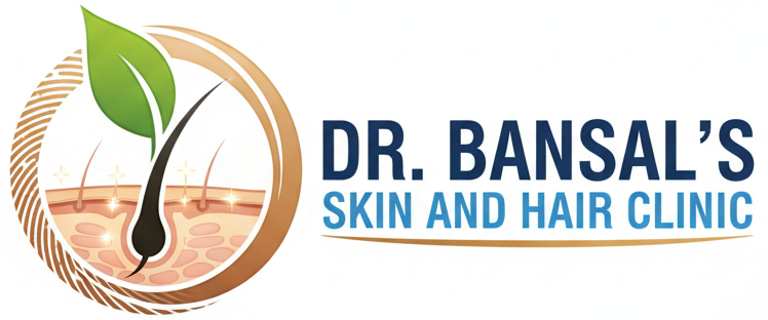Psoriasis Treatment In Indore
Dr. Bansal's Skin Clinic, Indore
Psoriasis is a chronic skin disease that speeds up the life cycle of skin cells.
This results in a rapid buildup of cells on the skin's surface, leading to thick, scaly patches, usually itchy, dry, and inflamed.
It is not contagious, and all parts of the body may be affected, although it most commonly affects the elbows, knees, scalp, and lower back.
Psoriasis is an autoimmune disease wherein your immune system, in turn, starts to attack healthy skin cells.
Symptoms
Red, raised patches of skin with thick, silvery-white scales
Itching, burning, or soreness
Dry, cracked skin that may bleed
Thickened or ridged nails (nail psoriasis)
Symptoms may be exacerbated by cold weather, stress, and infections.
Treatment of Psoriasis
While there is no permanent cure, treatment can help control symptoms, reduce inflammation, and slow skin cell growth.
1. Topical Treatments (applied to the skin)
Used for mild psoriasis:
Corticosteroid creams or ointments reduce redness and inflammation.
Vitamin D analogues, for example, calcipotriol, calcitriol, slow skin cell growth.
Coal tar preparations - less scaling and itching
Salicylic acid: helps to remove the scales.
Moisturizers keep the skin hydrated and prevent dryness.
2. Phototherapy (Light Therapy)
Used for moderate to severe psoriasis:
UV exposure, when controlled, slows down the skin cell turnover.
Types:
UVB phototherapy - most common
PUVA therapy - uses UVA light + a drug called psoralen.
Excimer laser: It targets small areas.
3. Systemic (Oral or Injectable) Treatments
Used for severe psoriasis or where other treatments have failed:
Methotrexate: This is a drug that lowers the activity of the body's immune system.
Cyclosporine suppresses the immune response.
Acitretin - a derivative of vitamin A that slows the growth of skin cells.
Biologic agents (injections such as adalimumab, etanercept, infliximab, secukinumab, ustekinumab) target specific parts of the immune system.
Prevention and Self-Care
Keep skin moisturized to reduce dryness and itching.
Avoid triggers such as stress, cold weather, alcohol, and infections.
Use gentle soaps. Harsh skin products should be avoided.
Eat a healthy diet and maintain a healthy weight.
Avoid smoking and excessive consumption of alcohol.
Follow prescribed treatment regularly-psoriasis often flares up if treatment is stopped.
Note ⚠️ Psoriasis is a lifelong condition, but its flare-ups can be controlled with proper treatment and care. Always see a dermatologist before starting treatment of any kind.
Care
Dr. Shreyas Bansal has over 46 years of experience in promoting hair health and wellness. At Dr. Bansal’s Homeopathy Clinic, located at 2 Manish Bagh, Sapna Sangeeta Road, Indore, we provide personalised care to strengthen your hair, improve scalp health, and restore confidence naturally.
Health Hairs AT
Beauty
+91 9926120111
© 2025. All rights reserved.
